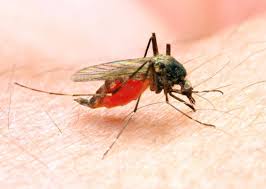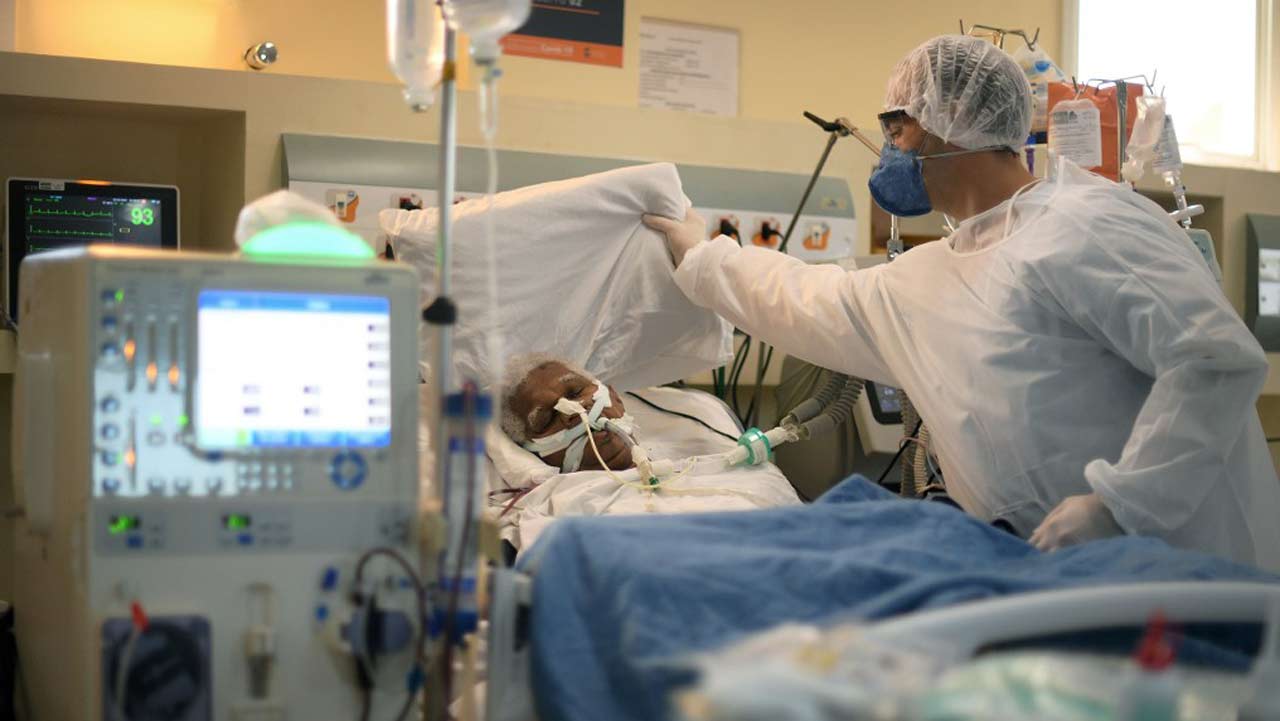REPORT OF THE EMERGENCY NATIONAL COUNCIL ON HEALTH (NCH) MEETING HELD AT BARCELONA HOTEL, WUSE II, ABUJA ON MONDAY, 5TH FEBRUARY, 2018.
1.Following the outbreak of diseases in the country which has claimed a number of lives, including those of health workers, the Honourable Minister of Health and his Top Management staff considered it necessary to convene an emergency National Council meeting to deliberate on Public Health issues and the way forward in dealing with the deadly disease outbreaks in Nigeria.
2. Consequently, a total of 364 participants from Departments, Agencies and Parastatals of the Federal Ministry of Health, State Ministries of Health and the Health and Human Services Secretariat of the Federal Capital Territory Administration, Abuja were present. Others in attendance were Civil Society Organisations, Private Sector Organisations and Development Partners such as WHO, UNICEF, UNFPA, and USAID.
3. The meeting commenced at 10:00 a.m. with recitation of the first stanza of the National Anthem which was immediately followed by individual prayers.
4. WELCOME ADDRESS BY THE HONOURABLE MINISTER OF STATE FOR HEALTH, DR. OSAGIE EHANIRE: The HMSH welcomed participants to the meeting and commended all stakeholders of the health sector for their impressive turnout to the meeting. He, on behalf of the management and staff of the Ministry of Health expressed his heartfelt condolences to the families of those who lost the lives of their relatives as a result of the outbreak. He then reiterated Government’s commitment to the health sector as one of its cardinal projects and to put an end to the menace of the Lassa fever and other disease outbreaks just like the country combatted the Ebola disease in 2014.
He challenged all stakeholders to see the fight as a clarion call to rise up to the situation and make fruitful contribution at the meeting. He concluded his speech by wishing all stakeholders a very fruitful deliberations.
5. GOODWILL MESSAGES BY THE WORLD HEALTH ORGANIZATION COUNTRY REPRESENTATIVE: WHO Country Representative, Dr. Wondimagegnehu Alemu, commended the efforts of the HMH and his team as well as identified some of the changes in the management of outbreaks since he assumed office in Nigeria. He promised to step up support to the participating states to ensure wider coverage. He then thanked the leadership of the Ministry for organising the emergency NCH.
6. OPENING ADDRESS BY THE HONOURABLE MINISTER OF HEALTH: The HMH wished everyone a fruitful year in spite of the challenges of combatting the series of epidemics such as Lassa fever, Cholera and Monkey Pox etc. He stated that our country bears a burden of communicable and non-communicable diseases which he attributed to multiple factors. He said that the Emergency NCH meeting was therefore convened to discuss public health issues of recent disease outbreaks with focus on Lassa fever.
7. Giving the background of recent outbreaks and the success made in combatting their spread, the HMH recalled how the Ebola outbreak caused great anxiety to Nigerians but with strong response strategies were able to halt the spread and therefore admonished members to build on the success recorded in fighting Ebola and other diseases. On Polio, the HMH lamented its reemergence in 2016 especially as a result of the security challenges in the Northeast. He also mentioned the persistent cases of Measles despite the use of highly effective vaccines and advocacy carried out to create awareness on how to combat these diseases. The HMH, listed the recent disease outbreaks that have been persistent despite the ongoing campaign strategies in the affected states. They include, Yellow fever, Monkey Pox, Meningitis and Lassa fever. He stated with details the strategies to include the following
• Prevention: Social mobilisation, Education, Mass enlightenment, Healthcare worker education;
• Preparedness: Activation of Emergency Preparedness and Response teams, Procurement of response materials, identification of isolation/treatment facility, and establishment of public health laboratory; and
• Response: Establishment of Emergency Operational Centres at state levels, supporting State Epidemiologists and Disease Surveillance and Notification Officers with logistics.
He disclosed that the current Lassa fever outbreak remained the most confirmed cases ever recorded in Nigeria with 405 suspected cases in 5 weeks. He also added that the current outbreak:
• Is active in 15 states: 105 laboratory confirmed cases, 3 probable cases with 31 deaths;
• Has affected ten healthcare workers in four states –Ebonyi (7), Nasarawa (1) Kogi (1) and Benue (1) with 4 deaths recorded in Ebonyi (3) and Kogi (1) States; and
• Had two health workers treated and discharged last week.
He also listed the reasons for failure to combat the outbreaks to include the following:
• Low preparedness;
• Communication gap between State and Federal Government;
• Poor public education;
• Weak political will;
• Lack of proper coordination.
In view of the foregoing, he emphasized the under listed measures as the way forward towards effectively combatting the menace of disease outbreaks in Nigeria. They include:
• To increase level of awareness in all States;
• Improve diagnosis especially for Malaria: Malaria must be confirmed before treatment;
• To take preventive measures;
• Recreation of operation centres for public health challenges to be located in each State;
• Early preparedness that should be commiserated by State efforts ;
• Collaboration with relevant stakeholders;
• To look at laboratory assessment to address functionality;
• To develop test kits, improve diagnosis and make plans to do some vaccines trial;
• To deploy surveillance officers across the states;
• To create infectious disease unit and share data on surveillance; and
• LGA to support logistics of DSNOs to identify cases based on Integrated Disease Surveillance Response (IDSR) guidelines and report.
The HMH commended the Edo State for his support to the Commissioner of Health and urged all other Commissioners to give regular update to their governors and also directed the reactivation of State Emergency Preparedness and need to work with any Teaching Hospital in affected States.
He added that all Health Commissioners should henceforth engage the HMH at least once in 2 weeks for update on outbreaks in their respective States and that there should be ‘No line of demarcation between the State and Federal Government’. He also urged all State Commissioners to:
• Reactivate State Emergency Prep & Response (EPR) Committees and provide logistics support for State epidemiologist/DSNOs for active surveillance and contact tracing;
• To carry out public enlighten and health worker education on Infection prevention and control;
• To identify and equip an appropriate isolation centre in every state capital and identify and equip an appropriate State public health laboratory;
• To collaborate with the tertiary hospitals or FMCs in your state to make the best use of available human and technical resources.
8. In conclusion, he commensurate with all victims who died due to the disease outbreaks, particularly the healthcare workers who died in the course of their duties. Emphasizing the need to build a stronger team, he said that there was need to mobilize support to bring an end to the spate of disease outbreaks, particularly of Lassa fever in the country.
He thanked all participants and wished them fruitful deliberations.
9. UPDATE ON DISEASE OUTBREAKS ACROSS THE STATES OF THE FEDERATION:
The States were all invited to give update on disease outbreaks in their respective domains and their efforts in terms of prevention, preparedness and response activities. With the exception of Kwara and Sokoto States that did not send representatives, all the States gave updates by giving a summary of their activities to contain disease outbreaks in respective States.
10. After the presentations, the HMH urged the States to:
i. Prioritise the public health challenges they have as this varies from State to State;
ii. Prepare early for outbreaks of Measles, Cholera and CSM and to work with NCDC and Department of Public Health, FMoH;
iii. Stigmatization of patients as a result of Lassa fever should be urgently addressed among health workers; and
iv. Patients with Lassa fever should be stabilised before transportation to referral centres as the journey has been known to weaken patients.
He further informed the Council that letters have been sent to all Federal Tertiary Hospitals to treat Lassa fever patients. He urged States to emulate the Usman Dan Fodio Teaching Hospital example where Consultants from the hospital were sent to the States secondary facilities to assist.
He also advised the States to send specimen for Lassa fever not to Irrua but to the NCDC Laboratory at Gaduwa.
10. NATIONAL UPDATE ON EPIDEMICS BY THE NIGERIA CENTRE FOR DISEASE CONTROL (NCDC): The National Coordinator/CEO, Nigeria Centre for Disease Control (NCDC) reported that there were a total of 405 suspected cases of Lassa fever out of which 105 were confirmed cases, 3 probable cases, and 31 deaths in probable and confirmed cases. He disclosed that there are active outbreaks in 15 States and only last week there were 15 new laboratory confirmed cases with 2 deaths.
In addition, 10 Health Care workers were affected in 4 States namely; Ebonyi (7), Nasarawa (1), Kogi (1) and Benue (1) resulting in 4 deaths in Ebonyi (3) and Kogi (1). He also said that the case fatality ratio were 27.6% among confirmed and probable cases and that there were increasing incidence in the number of cases.
10. The following were the response activities initiated by the NCDC to combat Lassa fever outbreak: activation of an Emergency Operation Centre (EOC); letters sent to all States to alert them of the seasonal outbreak; drugs, Personal Protective Equipment (PPE), tents etc. deployed to states; mobilised new partner Alliance for International Medical Action (ALIMA) to support case management; Rapid Response Teams (RRT) deployed to Ebonyi, Edo & Ondo States; 24 hours case management helpdesk – 09062654453; high level advocacy visit to Ebonyi State by the HMH; guidelines, Standard Operating Procedures (SOPs), Information Education and Communication (IEC) materials distributed to States; and intensive risk communication activities which include public health advisory, press releases and media appearances.
11. On Cerebrospinal Meningitis (CSM), the CEO/NCDC reported that there were a total of 536 suspected cases, 87 were laboratory confirmed cases, 206 samples collected and tested (38% samples collection rate), 82 deaths in suspected and confirmed cases with Case-Fatality-Ratio of 17%. He further reported that 12 States that have reported at least one suspected case and the States include Zamfara (272), Katsina (115), Sokoto (49), Jigawa (29), Bauchi (20), Cross River
(17), Kebbi (12), Yobe (12), Kano (4), Borno (3), Adamawa (2) and Kaduna (1). The first LGA that crossed the alert threshold was Bungudu in Zamfara State in Epi-week 51, 2017 but no LGA has crossed outbreak threshold.
12. The NCDC response activities to the CSM outbreak include: National CSM EOC activated on 4 th December 2017; Rapid Response Teams deployed to Zamfara & Kebbi; Lumbar puncture kits, ceftriaxone etc. deployed to 13 States reporting suspected cases with WHO support; training of State laboratorians in Abuja in December 2017; reactive vaccination concluded in Kagara ward, Talata Mafara LGA, Zamfara State; high priority States supported to develop CSM Preparedness plans; audio jingles currently being aired across high risk States; daily update of line lists and sharing of feedback to States; and CSM Guidelines and Quick Reference Guides disemminated to States and it is available on NCDC website.
13. On Yellow fever, the CEO/NCDC stated that there were a total of 367 suspected cases, 67 confirmed cases in 15 States - Kwara (12), Kogi (11), Plateau (2), Abia (1) Borno (1), Lagos (1), Oyo (1), Anambra (1) Zamfara (31), Enugu (1), Edo (1), Kebbi (1), Kano (1), Katsina (1) and Nasarrawa (1), and of this, 33 re-confirmed in Kwara, Kogi, Zamfara, Kebbi, Niger, Nasarawa and Kano States by WHO Reference Laboratory, Dakar with 45 deaths from all cases across 16 States.
14. The NCDC response activities to the Yellow fever outbreak include: multi-agency EOC coordinating outbreak response at NCDC; increased surveillance and letters of alert sent to all States; outbreak investigation team earlier deployed to Kwara, Kogi, Zamfara, Kebbi, Niger, Nasarawa and Kano; National Reference Laboratory, Gaduwa now testing for Yellow fever; reactive vaccination campaign completed in selected LGAs in three States (Kwara, Kogi & Zamfara); and ongoing preventive vaccination campaign in Kwara, Kogi and Zamfara States – (target of 25 million people nationwide).
15. On Monkey pox, the CEO/NCDC reported that as at 2nd February, 2018, there were a total of 205 suspected cases, 81 confirmed cases from Bayelsa, Rivers, Cross River, Akwa Ibom, Delta, Edo, Lagos, Enugu, Abia, Imo, Nasarawa, Ekiti, Oyo and FCT, 3 deaths (patients with immunosuppression), 24 States and FCT with suspected and confirmed cases. He further reported that the cases were mostly in South-South States of Bayelsa and Rivers and low Case-FatalityRatio.
16. The NCDC response activities to the Yellow fever outbreak include: multi agency EOC stepped down to Technical Working Group; committee has been set up for transition of Monkey pox surveillance into routine Integrated Disease Surveillance and Response (IDSR); continued collaboration with UNICEF on development, pretesting, review, printing and distribution of IEC materials; National Reference Laboratory Gaduwa now testing for Monkey pox; and ongoing research activities to better understand situation and inform decision making.
17. On Cholera as at week 5 of 2018, the CEO/NCDC disclosed that Cholera had been a yearly recurring problem in Nigeria with the re-emergence of cases in Kano, Zamfara, Bauchi and Nassarawa States in the last six weeks. He noted that Kano state recorded a total of 605 suspected cases and 26 deaths (CFR 4.3%) with 17 laboratory confirmed cases in 26 LGAs in last 4 weeks.
18. As part of the response activities of the NCDC are: Cholera outbreak preparedness meeting held in May 2017 with the attendance of 20 priority States and national Cholera outbreak preparedness plan developed; National Acute Watery Diarrhoea guidelines developed and disseminated to States; Oral Cholera Vaccine (OCV) campaign carried out for first time in Nigeria. Focus on most affected LGAs in Borno; weekly WASH meeting held with Federal Ministry of Water Resources and other stakeholders; NCDC RRT earlier deployed to Zamfara, Kebbi, Kaduna, Nassarawa and Borno States; and rapid test kits and other supplies deployed to support response.
19. On Measles, the CEO/NCDC reported that as at week 3 of 2018, there were 329 suspected cases of Measles recorded in 33 states. Accordingly, mass campaign was conducted in the North West and North East States in November and December, 2017 and another mass campaign scheduled for North Central and Southern States schedule for February 1 - 13 and March 8 – 20, 2018 respectively.
20. RESOLUTIONS: After an exhaustive deliberation, Council resolved as follows:
i. All States should ensure the establishment of functional Infection Prevention Committees (IPCs), Emergency Operational Centers (EOCs) and Isolation Centers;
ii. All States should adopt a multi-sectoral approach to disease outbreaks including Lassa fever;
iii. All commissioners are to update their State Executives and FMOH about the state of public health including outbreaks on weekly basis;
iv. Each State should prioritize the public health challenges in their respective States and build on appropriate partnership response to it;
v. That all tertiary institutions should be able to manage Lassa fever patients;
vi. All States to ensure the strengthening of community response through enlightenment campaigns & community involvement;
vii. All States to implement the 60th Council resolution on food safety to strengthen ongoing preventive measures;
viii. All States especially Borno, Kano, and Kebbi States should collaborate with the NCDC to prepare for measles, Cholera, Yellow fever and Cerebrospinal Meningitis outbreaks for 2018;
ix. All States should emulate the Ebonyi State example of partnership with federal government by establishing laboratories with existing federal hospitals in their State;
x. The States that have either made no payment or part payment, should pay-up their counter-part funding for Measles;
xi. The Director Legal and the Director Public Health of FMOH should review the laws on quarantine measures;
xii. Research should be conducted on disease outbreaks especially in relation to modes of transmission e.g. Monkey Pox in immune compromised persons and all year transmission/outbreak of Lassa fever.
xiii. Environmental health/sanitary inspectors’ cadres should be introduced into the system.
21. CONCLUSIONS: States were implored to prioritize their public health challenges so as to determine the way forward;
• Each Federal Health Tertiary Institution had been written on the training/capacity building on the treatment of Lassa fever to avoid moving patients/sending samples to long distance places that will cause delay in treatment;
• All presentations at the meeting were to be shared among the States so that they can learn from each another; and
• The phone number of the CMD, Irrua was given in case of urgent information/enquiries by any state – 08060476179.
22. VOTE OF THANKS – PSH: The PSH thanked all the stakeholders for attending despite the short notice. He admonished members to ensure implementation of the resolutions to the fullest and wished all journey mercies back to their destinations.
23. ADJOURNEMENT: The motion for adjournment of the meeting was moved by the Hon. Commissioner for Health, Zamfara state and seconded by the Hon. Commissioner for Health, Niger state.
24. CLOSING: The meeting closed at 3.00 pm after the recitation of the National Anthem.
ABUJA: Training Schedule for Basic Life Support BLS, Pediatric Advanced Life Support (PALS), Advanced Cardiovascular Life Support ACLS, First Aid, CPR, AED
PORTHARCOURT: Training Schedule for Basic Life Support BLS, Pediatric Advanced Life Support (PALS), Advanced Cardiovascular Life Support ACLS, First Aid, CPR, AED
LAGOS: Training Schedule for Basic Life Support BLS, Pediatric Advanced Life Support (PALS), Advanced Cardiovascular Life Support ACLS, First Aid, CPR, AED



